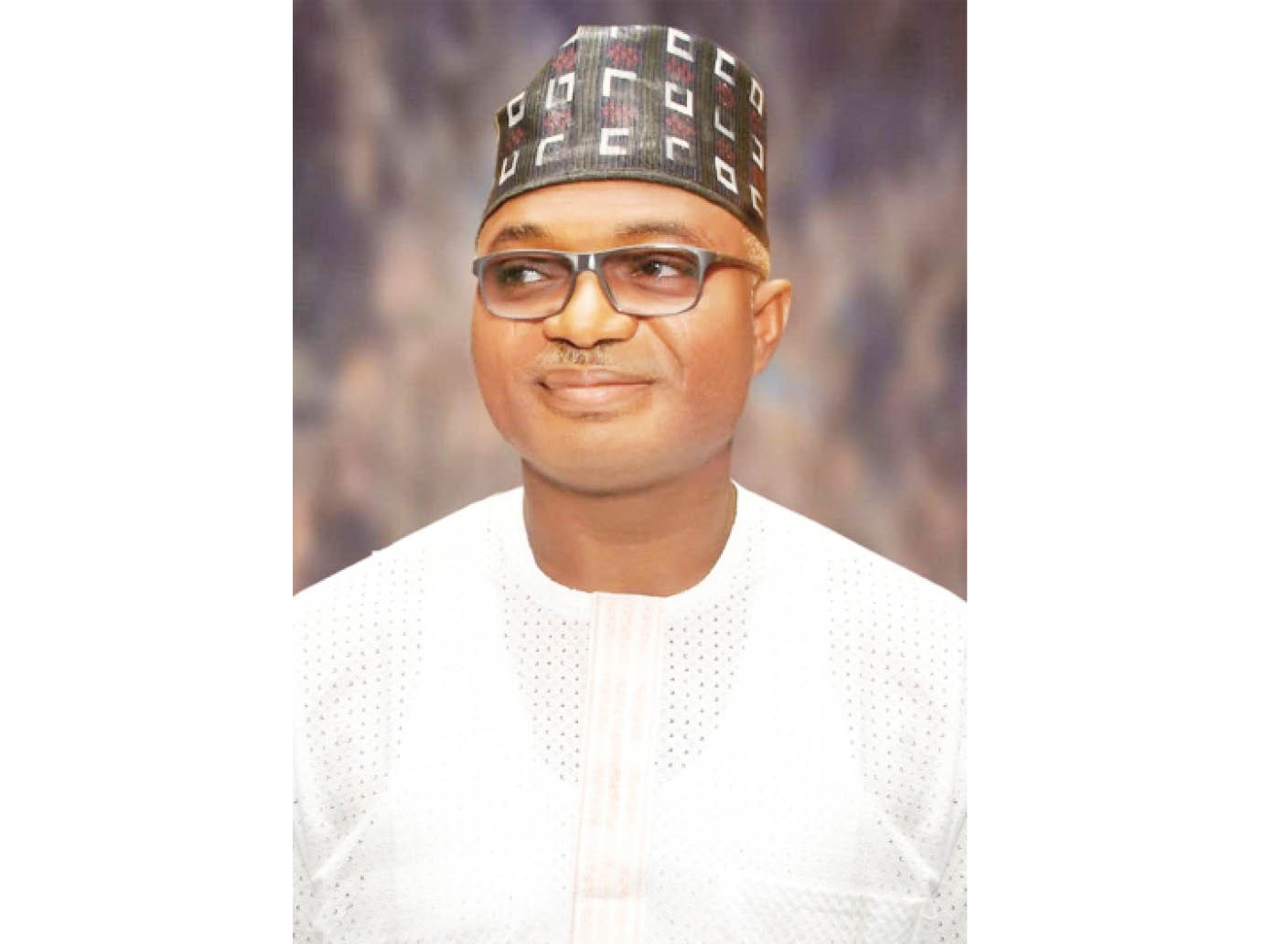Dr. Kamoru Yusuf, CEO KAM Steel Integrated Limited, is the Chairman, Basic Metal, Iron and Steel and Fabricated Metal Products sector of the Manufacturers Association of Nigeria (MAN). In this interview, he speaks on the issues affecting the iron and steel sector, especially on the Federal Government’s plan to resuscitate the moribund Ajaokuta Steel Rolling Complex in Kogi State.
The federal government has been making efforts to revive the Ajaokuta Steel Complex, what is your assessment of this?
I have taken my time to study and assessed the Federal Government’s efforts to resuscitate Ajaokuta Steel Company Limited and my conclusion is that it may be difficult for any foreign investor to successfully operate Ajaokuta Steel Complex without the full support of the local industry operators.
The drive to revive Ajaokuta Steel Complex is to set the stage for Nigeria as the leading industrial nation in the continent as earlier envisioned, which is being driven through the development of the Steel sector under the able leadership of the Honourable Minister of Mines and Steel Development, Arc. Olamilekan Adegbite; who has demonstrated passion and capability in promoting the steel sector in Nigeria, through his resolve that there is the need for the Federal Government to declare Iron and Steel as National Products for Rapid Economic Growth.
However, the process of resuscitating Ajaokuta Steel Company which is our nation’s heritage was not properly structured. What should have been done, was to consult with owners of existing steel plants who would have given clearer narrations of the issues in the industry. But this important aspect was jettisoned by the Presidential Committee constituted by the Federal Government on Ajaokuta. However, some of the indigenous stakeholders had since drew the attention of Government to this gap.
I however must commend the efforts of His Excellency, President Muhammadu Buhari, and the Honourable Minister for Mines and Steel Development, Arc. Olamilekan Adegibte for their astuteness and determination to resolve the age-long problem and make the Ajaokuta Steel Complex a dream that comes to reality in an effort to industrialize the country.
The government has been negotiating with foreign investors, do you think that would help to revive the complex?
No, foreign investors can bring Ajaokuta Steel Company back to operation. What the Federal Government needs to do is to adopt the model used by the Peoples of Republic of China which later transformed the country’s Steel industry within 25 years which led to massive development of the industrial sector in China.
What the Chinese Government did was to indigenize one of the country’s major industries -the Iron and Steel, into the hands of their people with the Government holding only 25% interest while local investors were allowed to own 75% stake. This created opportunities for the local investors and ensured that the wealth remained within the country, without repatriation of capital as well as dividends. This led to development of local skills and other multiplier effects that finally resulted in what the world is witnessing today as the industrial explosion in China.
I urge Nigerian government to redirect its policy on the industry because haven expended close to 40 years experimenting a particular model without result, it should be clear and in fact obvious that the commercial interest of the offshore investors does not match the developmental interest of the Government of Nigeria as well as the industrial aspiration of her citizens.
With my over 30 years’ experience in the iron and steel business, I can confidently provide a workable template, which of course could also show that no foreign investor can fix Ajaokuta Steel Company.
Any attempt to invite foreign investors to resuscitate the Ajaokuta Steel Company will result in the said foreign interest depriving us of our national heritage; as any proceed realized from the sales, will be repatriated by such interests to their countries and would consequently have negative effects on Government’s policy of backward integration and the corresponding objective of conserving the scarce foreign exchange with dare consequences on the current and future well-being of our economy.
Therefore, it is only indigenous investors that can make it happen so that the proceeds can remain here in Nigeria and we can re-invest this into the economy. This we have all seen, was the case in the cement industry and with Nigeria now taking another giant stride in refinery and petrochemicals.
What are the issues hampering the iron and steel sector despite all efforts?
Well, for more than two decades, government had not paid the desired attention to the steel sector which is the primary basis for industrial growth and development of any nation.
Iron and steel sector is suffering as a result of what is happening to Ajaokuta Steel Company. For an industry that is driven by committed and persevering investors, what government needs to do in the immediate circumstance is to mandate commercial banks and Development banks through the Central Bank of Nigeria (CBN), to focus and direct attention to giving adequate support to the steel industry due to the capital-intensive nature of the business.
Steel sector plays similar role as that of cement, sugar, fertilizer and petrochemical industries, all of which can provide the needed tripod-support for the development of other light industries in the country. The incremental and progressive results being witnessed by them was the outcome of the success story of the indigenous players in the cement industry over the past nine years and with reduced stake from the offshore investors.
The best model is to indigenize and empower Nigerians and ensure that the strategy as encapsulated in the Nigeria Industrialization Revolution Plan (NIRP), creates avenues for whosoever wishes to partner with the local giants who have verifiable track record in the industry to do so.
How did the steel sector benefits from the Real Sector Support Fund (RSSF)?
Despite CBN’s announcement on diversification and creating of a window for Real Sector Support Fund (RSSF), some of the commercial banks are not willing to support genuine industrialists, probably due to lack of key project appraisal management skills.
We expect that Bank of Industry (BoI), which is created to support industrialization in Nigeria should have intervened but it seems the Bank have changed its windows of operations, which Central Bank needs look into.
The ensuing confusion is that commercial banks are no longer comfortable with this arrangement as they believe BOI is not sharing the risk with them and hence, the consequent abandonment of the needed support from BOI, which some real sector operators believed has created and classed them into financial orphans, with no ‘care-giver’ in the financial market!
What then do you think is the way out for the sector?
One way that could be easily employed is for the Government to urgently channel the Comprehensive Import Supervisory Scheme (CISS) charges paid to the Nigeria Customs Service, (NCS) over the years, to providing bailout and support to the steel sector. Such money should be utilized to drive the industrial revolution process that will galvanize national industrial development.
There will be no reason for the government to borrow money to bring Ajaokuta back to life. We have the resources as a nation and we also have expertise who can make it work. We don’t need foreign investors to do it. Ajaokuta can be back again to produce machines that are needed by other steel industries in their production processes.
You will agree with me that with the gigantic size of Ajaokuta, the complex should not focus on the middle-steel production, which are massively available around Nigeria and West Africa. Rather, it should focus on the configuration of a high class production of steel products such as Slab Caster, Hot Rolled Coils and Plates, and Foundry for the production of the required machinery and tools in the country, since 50 per cent requirement for these high-class configurations are already available in Ajaokuta.
How do you see the prospects for Nigeria with the take-off of AfCFTA?
The only way Nigeria can participate successfully in the African Continental Free Trade Area (AfCFTA) and successfully compete among countries in the continent is to develop our giant industries. We can look at China, which always underwrite their capital projects under Sinosure (China Credit Insurance Corporation).
The Federal Government should also borrow a leaf from other developed nations as well as some African countries; by creating platforms for Credit Insurance Underwriters in order to reduce the huge risks involved in capital projects. Government also needs to create more funding windows and other support infrastructure to elicit rapid industrial development.
There cannot be significant growth in the sector without the intervention of the Federal Government where and when necessary.

 Join Daily Trust WhatsApp Community For Quick Access To News and Happenings Around You.
Join Daily Trust WhatsApp Community For Quick Access To News and Happenings Around You.


